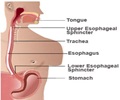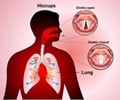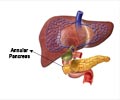Researchers at the University of Cincinnati (UC) have discovered a gene that helps control the secretion of acid in the stomach.
According to researchers, this information could one day aid scientists in creating more efficient treatment options for conditions such as acid reflux or peptic ulcers.During the study, UC professor Manoocher Soleimani, MD, and colleagues found that when transporter Slc26a9 - the gene responsible for the production of chloride in the stomach - is eliminated from the mouse model's system, acid secretion in the stomach stops.
Gastric acid, comprised mainly of hydrochloric acid (HCL), is the main secretion in the stomach and helps the body to break down and digest food.
"Investigators were already aware of the gene that caused hydrogen to secrete in the stomach, but the gene that caused chloride to secrete has remained an unknown. When we knocked out-or eliminated-this specific transporter in mouse models, acid secretion in the stomach completely halted," Soleimani, director of UC's nephrology division and principal investigator of the study, said.
"The hydrogen and chloride genes must work together in order for the stomach to produce acid and function normally," Soleimani added.
Soleimani hopes that this data can help researchers create more therapies for people who overproduce stomach acid.
Advertisement
He added that the long-term use of these kinds of drugs could cause damage to the lining of the stomach, among other problems.
Advertisement
The study is published in the Nov. 3 edition of the Proceedings of the National Academy of Sciences (PNAS).
Source-ANI
SPH













